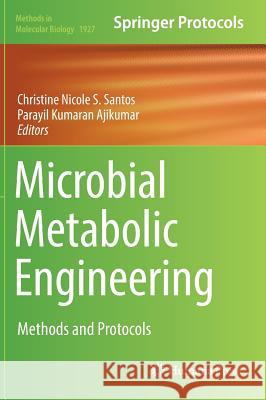topmenu
Wyniki wyszukiwania:
wyszukanych pozycji: 2
 |
Microbial Metabolic Engineering: Methods and Protocols
ISBN: 9781493991419 / Angielski / Twarda / 2019 / 252 str. Termin realizacji zamówienia: ok. 16-18 dni roboczych. |
cena:
806,99 |
 |
Hospice: A DIFFERENT TYPE OF HOPE: Criteria For Choosing Your Hospice Team Sooner
ISBN: 9798765248485 / Angielski / Miękka / 2024 / 184 str. Termin realizacji zamówienia: ok. 16-18 dni roboczych. |
cena:
72,52 |










